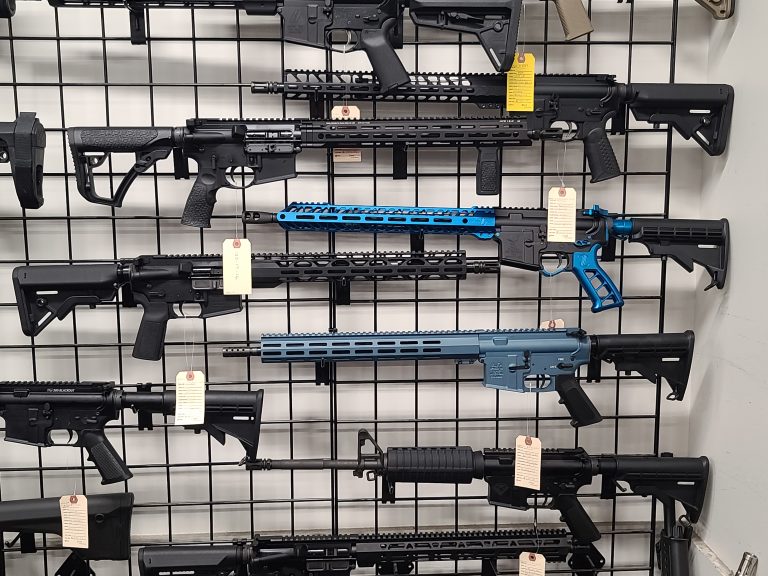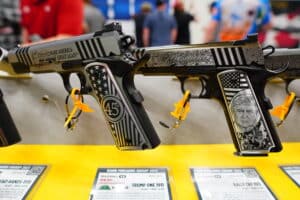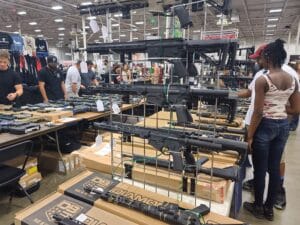Americans are less supportive of banning AR-15s and similar firearms than ever before.
That’s one of the surprising takeaways from the first Quinnipiac University poll on gun policy since the horrific shooting at Robb Elementary School in Uvalde, Texas. The poll, released on Wednesday, found that the fewest registered voters supported an “assault weapons” ban since Quinnipiac first asked the question in 2013. While support still cracked a bare majority, it was down 17 percent since its peak just four years ago.
The drop in support for an assault weapons ban runs contrary to the trajectory of other gun-control policies. Support for stricter gun laws overall increased 12 points over the past year to 57 percent. “Red flag” laws saw an increase of 11 points in support to 83 percent. Universal background checks saw a smaller boost in support but ended up with 91 percent support.
The continued drop in support for assault weapons bans may signal a new reality for the policy. If other polling replicates Quinnipiac’s findings and even mass shootings no longer drive greater support for outright bans on the popular firearms, the proposals could end up in the same places as a ban on handguns. In 1959, Gallup found 60 percent of Americans supported a ban on handguns, but by 2021 that number was down to just 19 percent.
Lack of support in polling has already translated to a lack of action in Congress. Despite President Joe Biden’s (D.) repeated calls to reinstitute and expand the 1994 federal assault weapons ban, his party has not passed a ban through either house of Congress. While Speaker of the House Nancy Pelosi (D., Calif.) has promised a markup on one in the wake of the Uvalde shooting, the policy did not make its way into the collection of gun-control policies passed by the House on Wednesday and Thursday.
Quinnipiac found a strong partisan split on support for an assault weapons ban. 89 percent of Democrats support the idea, while only 46 percent of independents and 26 percent of Republicans do. It also found an age gap with older Americans more likely to support a ban than younger Americans, with a majority of 35-to-49-year-olds opposed to the idea. A racial divide was also present, with 76 percent of Black Americans supporting the policy while only 48 percent of Hispanics and 47 percent of Whites do.
Gun owners also opposed the idea of a nationwide ban on the sale of assault weapons by a two-to-one margin.
Instead, focus has shifted towards raising the age at which people can buy assault weapons to 21-years-old. The House of Representatives and New York passed such a restriction this week. The poll found 74 percent agreed it’s a good idea to raise the age for all gun sales.
Still, most Americans do not view the availability of guns as the main cause of mass shootings like the one in Uvalde. 40 percent identified mental health issues as the main culprit, while only 19 percent said guns. Another 17 percent pointed to family instability as the root cause.
54 percent of those polled did not expect Congress would end up taking any action to reduce gun violence this year.






